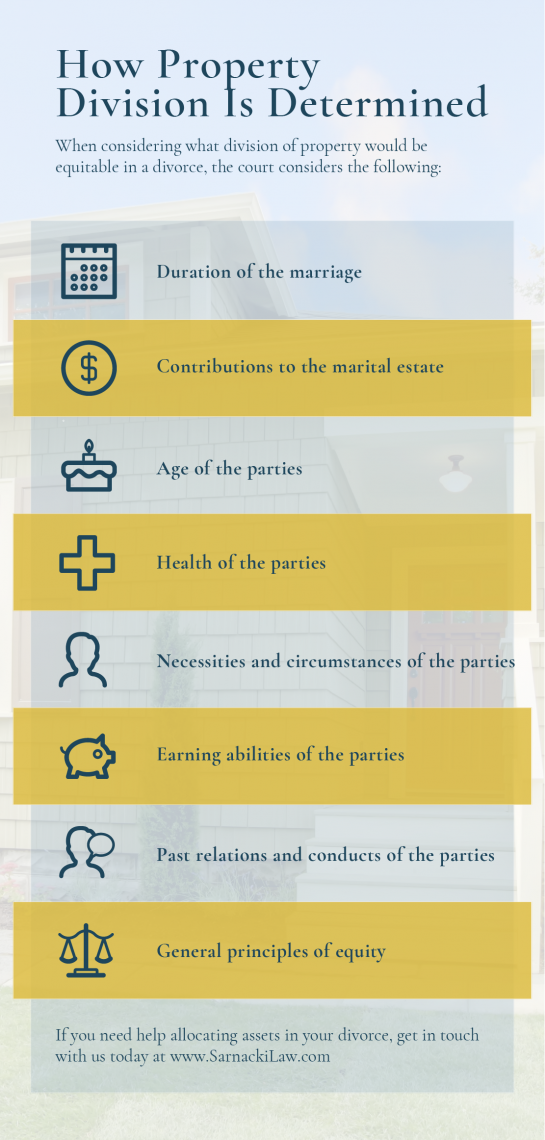
Property Division

Who Owns What
Spouses may either reach an agreement concerning the division of property on their own or allow a judge to make the decision for them. In either event, the division is almost always final and cannot be modified. Property in divorce is generally divided into two categories:
Marital property: Marital property refers to all assets and debts acquired by a couple during the course of a marriage. This includes all incomes, mortgages, stocks, automobiles, and any of the assets listed previously on this page. Marital property is a very broad and fluid category. Even if your spouse “owns” a piece of real estate or it is titled in their name, it may still be considered marital property, as long as it was acquired during the marriage.
Separate property: Separate property, on the other hand, refers to all assets owned by a spouse prior to marriage or received during the marriage as a gift or inheritance.
Michigan law recognizes that sometimes the distinction between these two categories can be hazy. Marital and separate property may become mixed together, known as “commingling.” For example, a separate bank account may become marital property when the other spouse makes a deposit in it. In such instances, a qualified divorce lawyer can help sort through all the details of your particular circumstances, and determine what assets should be considered marital versus separate property.If you’re having difficulty making this determination yourself, get in touch with Sarnacki Law Firm today to learn how we can help.
How Property Division Is Determined In Court
Should you decide to take your property division case to court, a judge will use a number of different factors to determine who should be allocated what. While there is no set formula for this, there are several basic determinants that most judges consider.
High-Assets Divorces
A person has the greatest need for a skilled attorney in high-assets cases. Valuation of assets, pension and retirement benefit plans, discovery of hidden assets, tax consequences, and premarital agreements all present traps for inexperienced attorneys in such instances. An experienced attorney can guide a client through this maze. Sarnacki Law Firm in Grand Rapids has the experience and expertise to help you with your high-assets divorce. Contact us today.
We Are Currently Accepting New Clients
If you and your spouse have been unable to come to a mutual agreement about dividing your property, Sarnacki Law Firm can help. Dave Sarnacki has three decades of experience in divorce and family law, including high-assets, high-stakes cases. To schedule an initial consultation, please get in touch. We look forward to working with you, and helping you retain the property that is rightfully yours.
